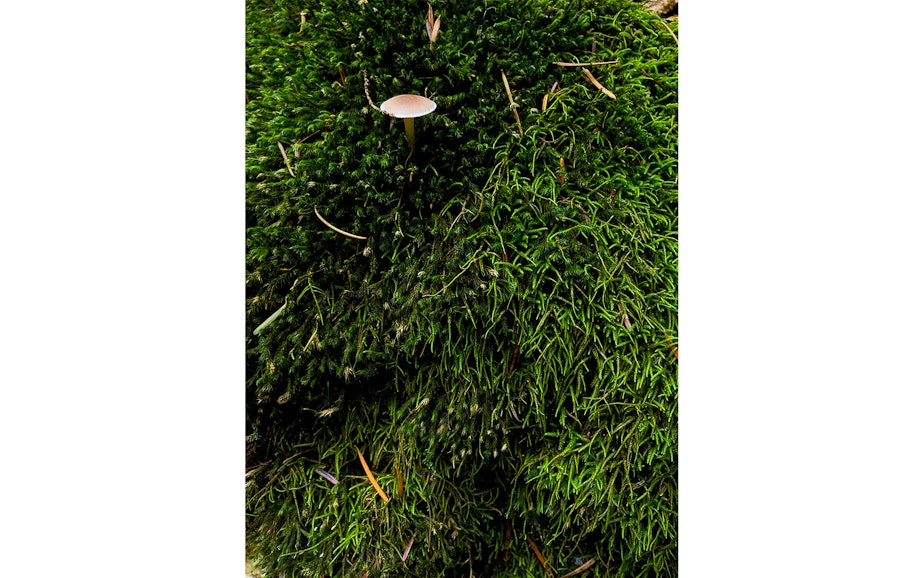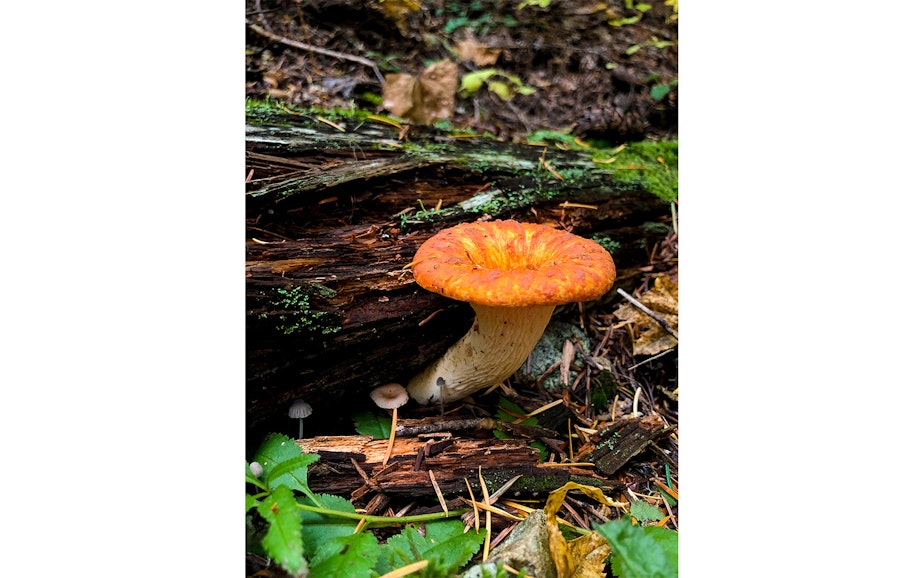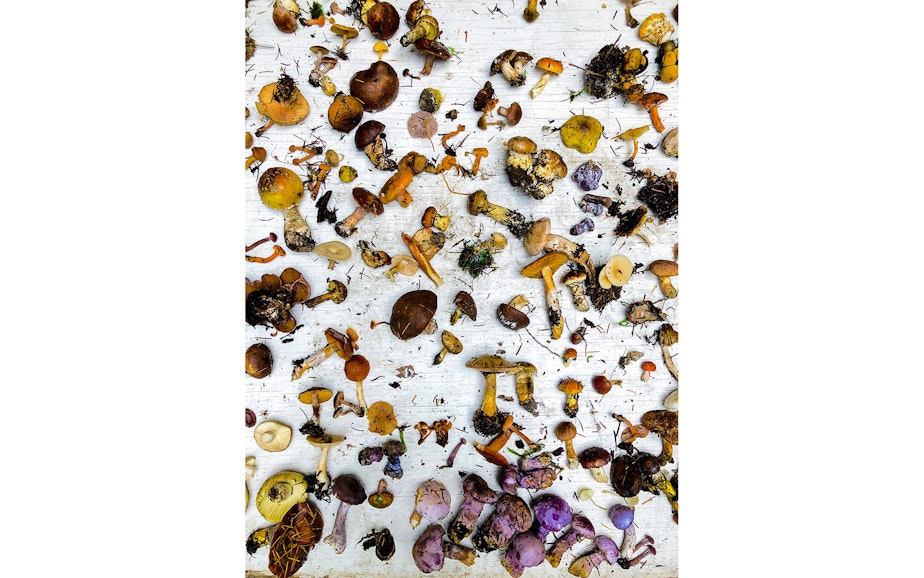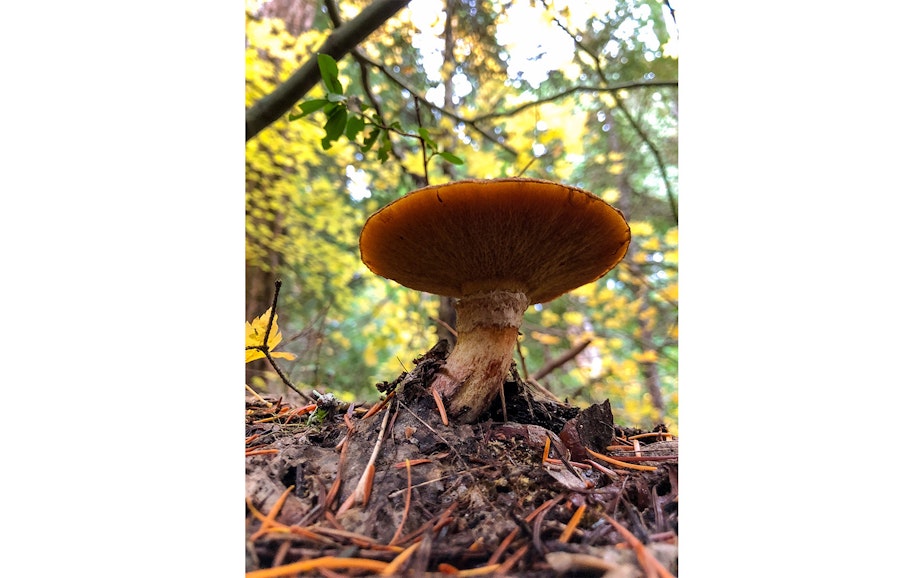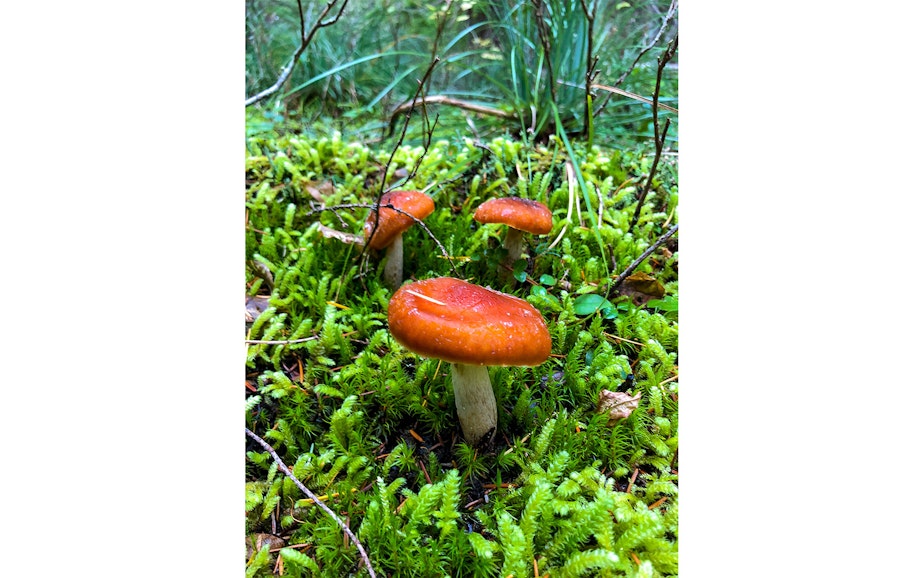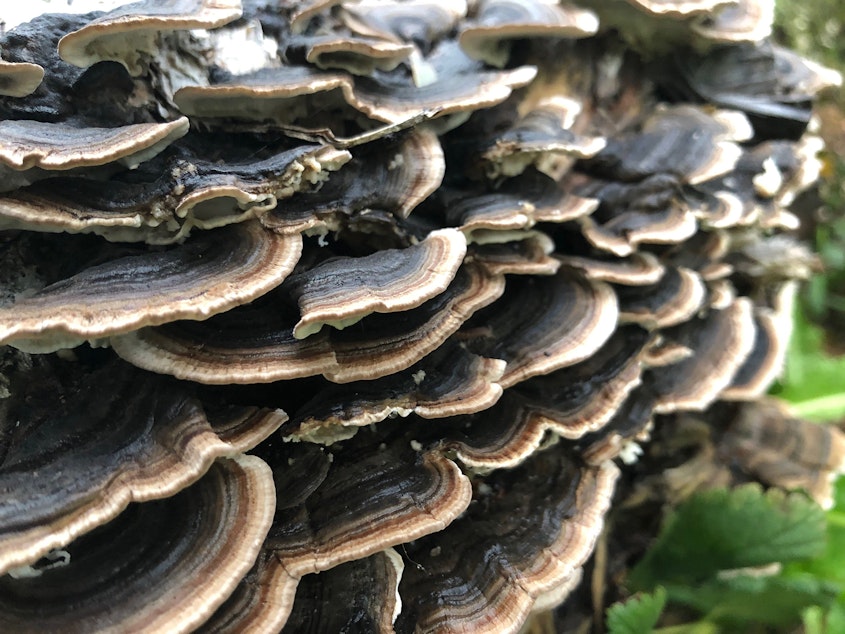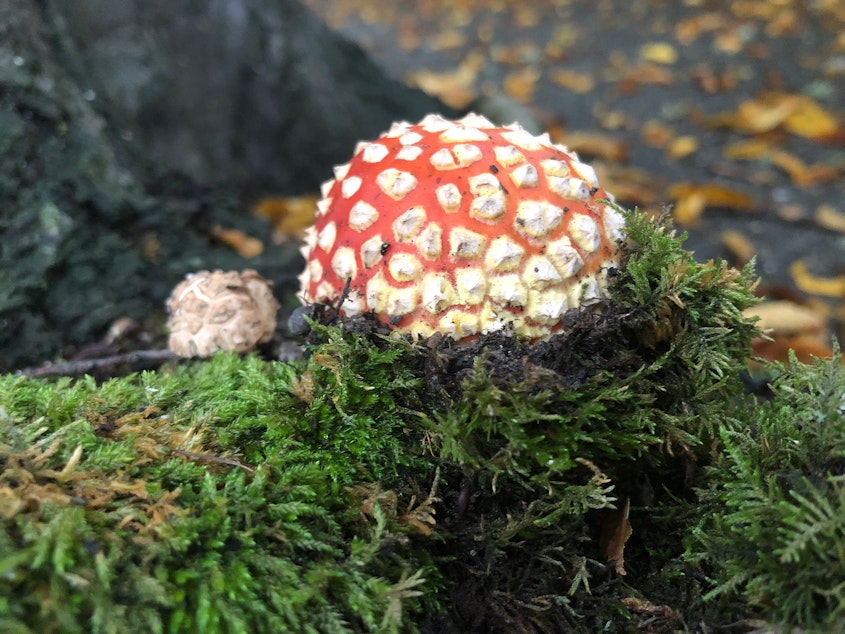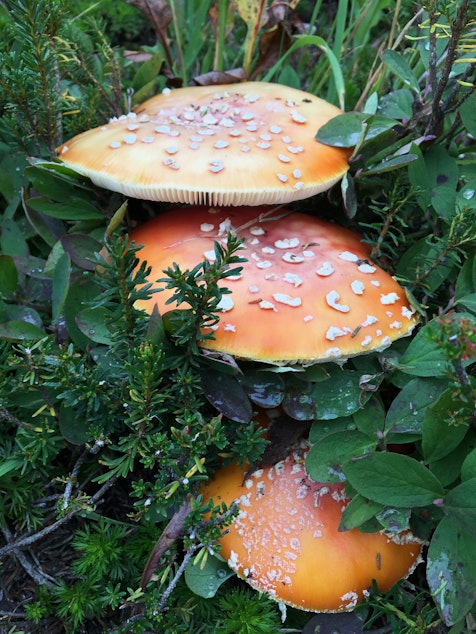Yes, this is a mushroom. Wild photos of fungi in the Northwest
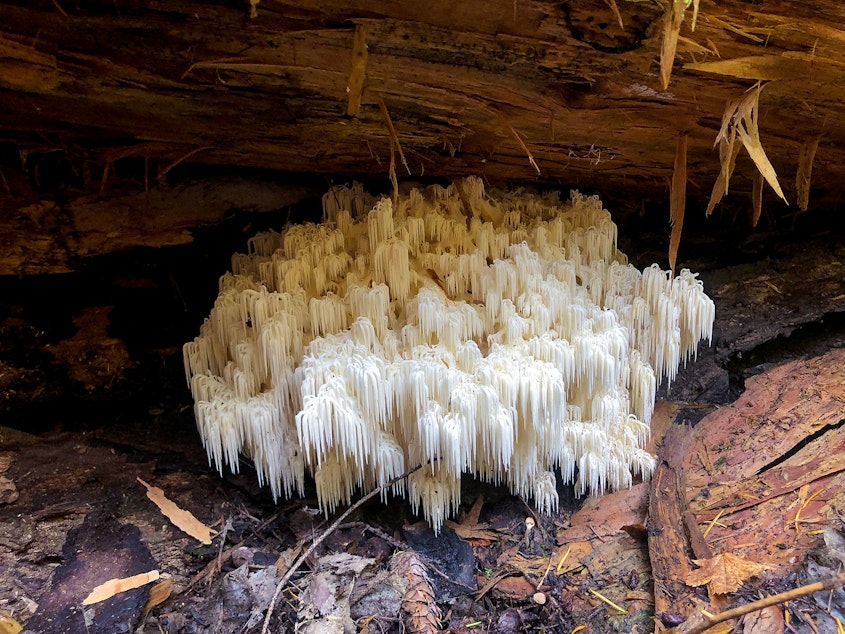
Oh, the mushroom puns!
“There’s not mush room in this house.”
Or this email sign-off: “Mush love!”
And this one, riffing off the deadliest mushroom in the world that is increasing in the Northwest: Death Cap isn’t Cutie.
But we digress. Mushrooms are known to flourish here in the Pacific Northwest, and this year they have been particularly bountiful. And beautiful.
“I wouldn’t call it a hundred year flood,” said Danny Miller, an amateur mycologist with the Puget Sound Mycological Society. “It’s once or twice a decade.”
[Joshua Trujillo, a Seattle photographer, photographed mushrooms on a recent outing with the mycological society. Scroll through to see his photos — plus more by journalists in our newsroom.]
Sponsored
Miller said this is one of the better years since 2013. “The long, hot, dry summers we've had lately were not the best conditions for them,” he said.
Among these pretties have been poisonous ones known as death caps. The University of Washington put out a notice of the deadly death cap mushrooms, which were found on campus. They look innocently edible, but eating them may result in liver failure, kidney failure … and death.
In British Columbia, Canada, there have been 201 mushroom poisoning calls as of September 30, according to the drug and poison control center in the province.
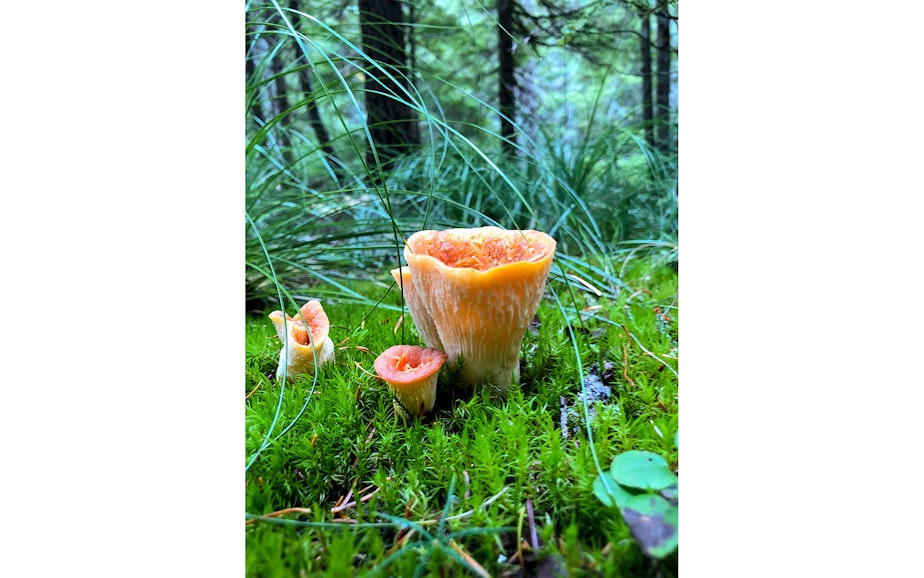
Two-thirds of those poisoned were children under the age of 5, according to the center. No child has died, although two dogs are believed to have been poisoned.
(This is where we make the obvious, but requisite, statement that you shouldn't eat unidentified mushrooms.)
Miller thinks of mushrooms in two categories: urban and wild.
“There are a whole lot of mushrooms that grow around urban places where people go,” he said.
These urban mushrooms like disturbed land and grow near non-native species of trees that you don’t find in the wilderness, he said. Mushrooms may have a symbiotic relationship with these trees.
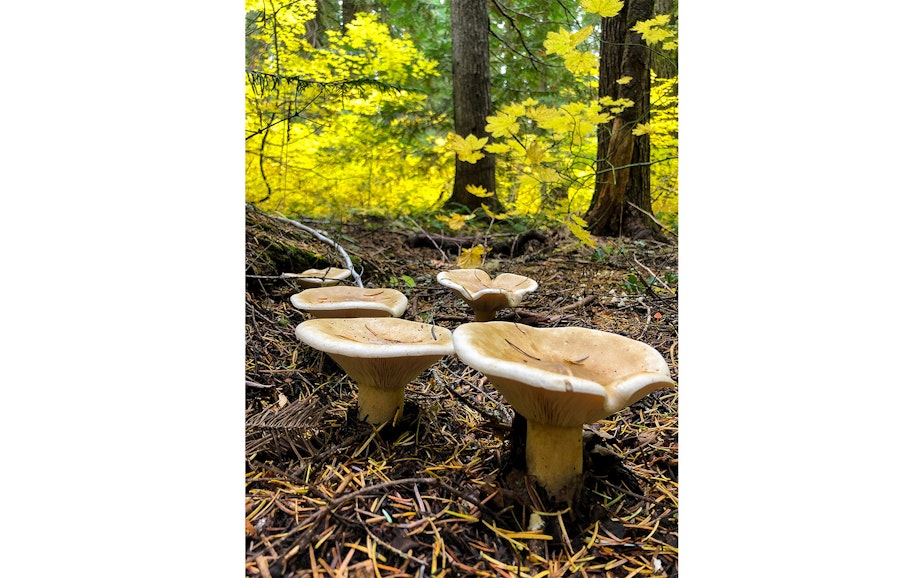
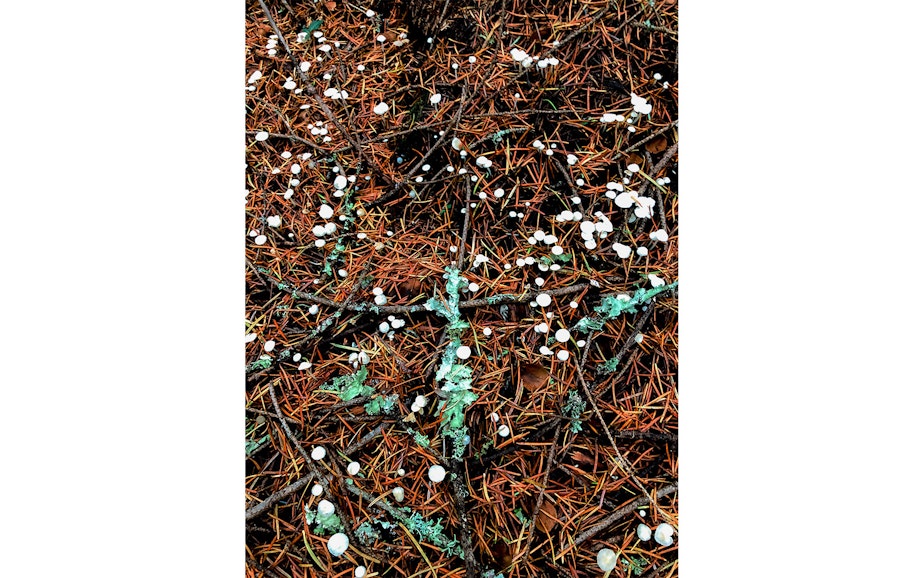
Psychedelic mushrooms have been known to pop up in Seattle.
“They tend to grow in the urban areas, woodchips or gardens,” Miller said. “And city parks and many places around campus are the right habitat.”
Some types are native to the area, Miller said, and they’re more common than in many other parts of the world.

The Puget Sound Mycological Society offers a mushroom identification drop-in clinic on Monday nights during peak mushroom season.
“We expected that we would get a percentage of people with magic mushrooms to identify,” Miller said, “using our service for that. It’s a small percentage of people doing that, maybe because they’re afraid of getting caught. I don’t know.”
Most of those who come are hoping they found a good edible … but want to make sure.
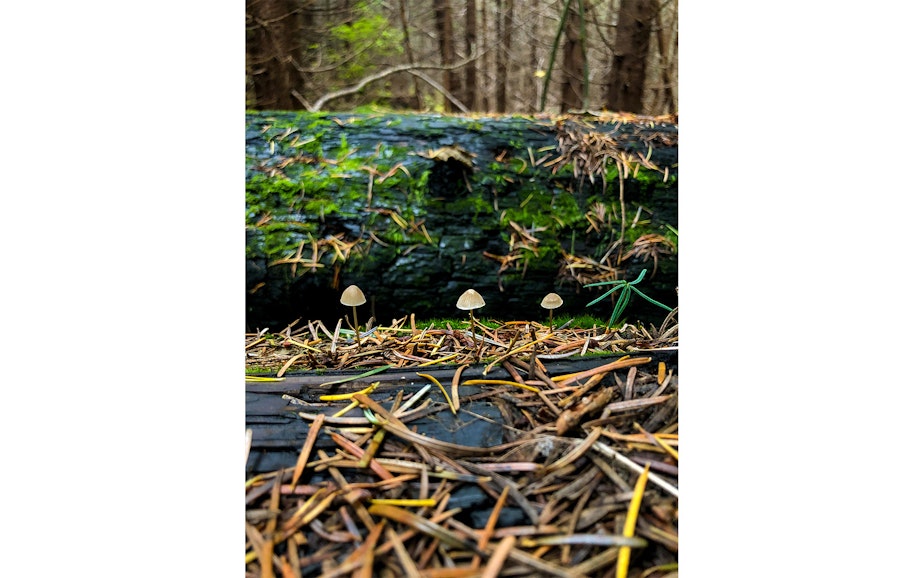
Sponsored


